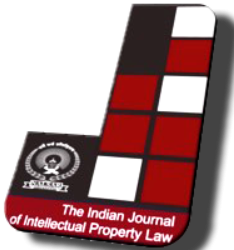IJIPL has had the privilege of hosting publications by icons in the field of intellectual property law, including:
Mark Lemley is the Director of the Stanford Program in Law, Science and Technology. He teaches intellectual property, patent law, trademark law, antitrust, among other subjects. He is the author of eight books and 179 articles, including the two-volume treatise IP and Antitrust. His works have been cited more than 280 times by courts and more than 17,000 times in books and law review articles, making him the most-cited scholar in IP law and one of the five most cited legal scholars of all time. He has published 9 of the 100 most-cited law review articles of the last twenty years. Prof. Lemley is a founding partner of Durie Tangri LLP. He litigates and counsels clients on intellectual property, antitrust, and internet law. He is the founder of Lex Machina, Inc., a startup company that provides litigation data and analytics. He has previously held faculty positions at Berkeley Law School and the University of Texas School of Law.
A Cautious Defense of Intellectual Oligopoly With Fringe Competition
Joseph Madison Beck is a retired partner at Kilpatrick Townsend where he served as lead counsel for Google Inc. and was named the Intellectual Property Lawyer of the Year by Intellectual Property Magazine. He also served as Adjunct Professor of Intellectual Property Law at Emory University.
A New Bonanza for Plaintiff’s Lawyers? Multi-Million Dollar Copyright Liability in the USA
Crossing Borders or Crossing Swords: Conflicts In ‘Moral Rights’ and ‘Fair Use’ In the Digital World
Lawrence Lessig is the Roy L. Furman Professor of Law at Harvard Law School. Professor Lessig is one of the preeminent voices in intellectual property law. He also taught at Stanford Law School, where he founded the Center for Internet and Society. Cited by The New Yorker as “the most important thinker on intellectual property in the Internet era,” Lessig has focused much of his career on law and technology, especially as it affects copyright. He has served on the boards of the Free Software Foundation and the Electronic Frontier Foundation and is currently on the boards of Creative Commons project and iCommons, amongst numerous others. He clerked for Judge Richard Posner on the 7th Circuit Court of Appeals and Justice Antonin Scalia on the United States Supreme Court.
Code: Version 2.0 – Intellectual Property
Shamnad Basheer & Mrinalini Kochupillai: Prof. Basheer was one of India’s most prominent IP scholars. He was the founder of the blog SpicyIP. He founded several initiatives such as SpicyIP, IDIA, P-PIL and Lex Biosis. Basheer intervened in the landmark Novartis case, filed a number of other public interest litigations and took initiative to bring about changes in the IPR regime in India.
Dr. Kochupillai has served as a Program Director and faculty member at the Munich Intellectual Property Law Center (MIPLC). She is currently a lecturer at the TUM School of Governance, faculty member at the EU Business School, Munich & MIPLC, & Co-investigator of the IP & Global Development Project with the University of Leeds.
TRIPS, Patents and Parallel Imports in India: A Proposal for Amendment
Srividhya Ragavan is a Professor of Law and Director of India Programs at Texam A&M University. Her research emphasizes issues relating to international trade and intellectual property rights. Ragavan also serves as a consultant for the Department of Industrial Policy & Promotion, Government of India. Previously a Fulbright Nehru Scholar, she has a SJD from the George Washington University Law School, an LL.M. from King’s College, University of London and B.A. LL.B. (Honors) from the National Law School of India University, Bangalore
India’s Attempt to Reconcile Diversity and Intellectual Property Issues
Sean Flynn is a Professor at Washington College of Law, American University and is the Associate Director of the Program on Information Justice and Intellectual Property (PIJIP). He teaches courses on the intersection of intellectual property, trade law, and human rights. He is also the Editor in Chief of Infojustice.org and the Chair of Global Expert Network on Copyright User Rights.
Brook Baker is a Professor at Northeastern University School of Law. His recent scholarship has focused on intellectual property and access to medicines and intensifying the legal, economic and policy response to the global HIV/AIDS pandemics. He has also written and consulted extensively on intellectual property rights, trade, access to medicines and medicines regulatory policy.
Srividhya Ragavan, Sean Flynn & Brook Baker, Justifying India’s patent position to the United States International Trade Commission and Office of the United States Trade Representative
Michele Boldrin & David Levine: Michele Boldrin is currently the Joseph Gibson Hoyt Distinguished Professor in Arts & Sciences at Washington University in St. Louis. He has previously worked at University of Chicago, UCLA, Kellogg School of Management, Charles III University of Madrid and University of Minnesota . He is a research fellow at the Federal Reserve Bank of St. Louis since 2006. He is a Fellow of the Econometric Society, a past Associate Editor of Econometrica and (past) Editor and (current) Associate Editor of the Review of Economic Dynamics, among other academic journals. He has (co-)written four books on various issues related to the law and economics. He is affiliated with CEPR and a director of FEDEA.
David Levine is Joint Chair of the Department of Economics and Robert Schuman Center for Advanced Study at the European University Institute. He is John H. Biggs Distinguished Professor of Economics Emeritus at Washington University in St. Louis. His research includes the study of intellectual property and endogenous growth in dynamic general equilibrium models. He has been an assistant professor of economics at UCLA, an associate professor of economics at the University of Minnesota and a professor of economics at UCLA. In 1997 he became the Armen Alchian Professor of Economics at UCLA. Levine was the co-editor of the Review of Economic Dynamics from November 1996 to June 2001, and of Econometrica from July 2003 to June 2008. He presided over the Society for Economic Dynamics from July 2006 to June 2009. Levine is a Fellow of the Econometric Society since 1989 and a research associate at NBER since 2006.
Does Intellectual Monopoly Help Innovation?
Amir H. Khoury is a Senior Lecturer, Faculty of Law, Tel Aviv University. He was formerly a Distinguished Visiting Professor at the School of Law, University of Kansas. He has received his Ph.D. from Haifa University, his LL.M. from Fordham University, and his LL.B. from The Hebrew University. He specializes in intellectual property law. He has lectured at conferences around the world as well as at USPTO IP programs held in Muscat, Jordan, USPTO-HQ in Alexandria VA, and the University of Kansas. He also teaches at the Tel-Aviv Berkeley Master of Law program and has served in the past as international advisor for The “Queen Rania Centre for Entrepreneurship” (Amman).
Brands as Food for Thought: The Case for Regulating Food Brands
Prof. V. C. Vivekanandan specializes in IPR, Cyber Laws and Business Laws and is the Ministry of Human Resources Development (MHRD) IP Chair Professor. He also coordinates the NALSAR Proximate Education offering P.G. Diploma in Patents Law, Cyber Laws, Media Laws and International Humanitarian Laws. He is an Adjunct Visiting Professor with the Business School of University of Buffalo since 2007 and is currently a research fellow with the law school at Maastricht University under the ICCSR NWO exchange. He is also an elected member of the Asia Pacific Region of ALAC to ICANN (Internet Corporation of Assigned Names and Numbers). He also serves as an advisory committee member of the Indian Patent Office. He is also a visiting resource person to National Academy of Agricultural Research & Management, NIPER, NADT, IIT-Kanpur, IIM –Kolkata, NRDC to name a few. He has also served as the Dean of the Rajiv Gandhi School of Intellectual Property Law at IIT Kharagpur.
Book Review: Methods and Perspectives in Intellectual Property by Graeme B. Dinwoddie
Book Review, ‘Technology Laws Decoded’, Book by N S
Nappinai
J. Sai Deepak is an engineer turned lawyer, notable for his work on the court case pertaining to the entry of women to Sabarimala. He worked as an Associate Partner at Saikrishna & Associates and thereafter started his own practice. He is engaged by law firms and independent solicitors to appear and argue for their clients in the Delhi High Court, the Supreme Court of India, the Madras High Court, NCLTs, NCLAT, NCDRC, CCI and IP Tribunals.
The Novartis Decision of the Indian Supreme Court: A Pill by any Other Name would Treat as Neat
K.D. Raju is a Fullbright Fellow and is currently a Professor of Law, Rajiv Gandhi School of Intellectual Property Law, IIT Kharagpur. He is also Microsoft Outstanding Young Faculty Fellow and has published multiple books on Intellectual Property Rights.
Interpretation of Section 3(d) in the Indian Patents Act 2005: A Case Study of Novartis
Latha R. Nair is a Partner at K&S Partner, a boutique IP Firm. Her practice focuses upon trade marks, domain names, copyrights and geographical indications. She has been assisting the Government of India in the protection of Indian geographical indications such as Basmati rice and Darjeeling tea both in India and overseas. She is also serving as a member of the Publications Committee of the International Trademark Association (INTA).
How Fair are The Fair Dealing Exceptions Under Indian Copyright Law?

